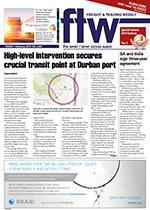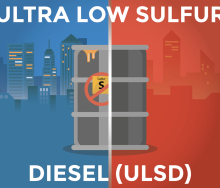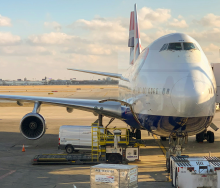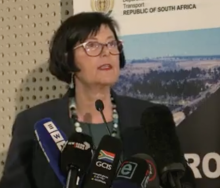International World Customs Day The World Customs Organisation (WCO) on Friday, 25 January celebrated International Customs Day under the slogan “SMART borders for seamless Trade, Travel and Transport.” To that end, the WCO has expressed its commitment to promote the transformation of frontiers into “SMART borders”, with Customs acting as the central connecting and coordinating hub. The concept of SMART borders also highlights Customs’ role in supporting the United Nations’ 2030 Agenda for Sustainable Development. The WCO has devised and developed many tools, instruments and initiatives to assist Customs administrations in working “smartly”. These include the revised WCO International Convention on the Simplification and Harmonisation of Customs Procedures, the WCO SAFE Framework of Standards to Secure and Facilitate Global Trade, the WCO Security Programme, the WCO SAFE Package 2018, the WCO Time Release Study (TRS), the WCO IT Guide for Executives, the WCO Guidance on the Use of ICT for TFA Implementation, the WCO Cross-Border E-Commerce Framework of Standards, and the WCO Digital Customs Suite, among others. Taxation in South Africa 2018 On 23 January the South African Revenue Service (Sars) legal counsel published the 116-page “Taxation in South Africa 2018” manual. According to the preface, the general guide provides an overview of the most significant tax legislation administered by the Commissioner for Sars, namely, the Income Tax Act; Value-Added Tax Act; Customs and Excise Act, 1964; Transfer Duty Act; Estate Duty Act; Securities Transfer Tax Act; Securities Transfer Tax Administration Act; Skills Development Levies Act; Unemployment Insurance Contributions Act; Employment Tax Incentive Act; and Tax Administration Act. Customs is covered in Chapter 12, across 13 pages, whilst Chapter 13 is devoted to excise duties. Even if you are a customs and excise specialist you would still derive value in reading through the 16 pages. Taxation in South Africa 2018 - Customs In South Africa goods are classified according to the Harmonised System on Tariffs and Trade (HS or the Harmonised Tariff System). The specific classification will determine what the rate of duty is for a specific commodity and whether it will attract additional duties or levies. The policy on tariffs applicable on importation into the Southern African Customs Union (Sacu) is set by the International Trade Administration Commission of South Africa (Itac) under the authority of the department of trade and industry. Customs duties are imposed by the Customs and Excise Act, 1964. The duties are levied on imported goods with the aim of raising revenue and protecting the local market. Three kinds of duties are levied on imported goods, namely customs duties; antidumping and countervailing duties; and Value-Added Tax (VAT). The amount and type of duty imposed on a good is determined by the following main criteria: the value of the goods; the volume or quantity of the goods; and the tariff classification of the goods.













